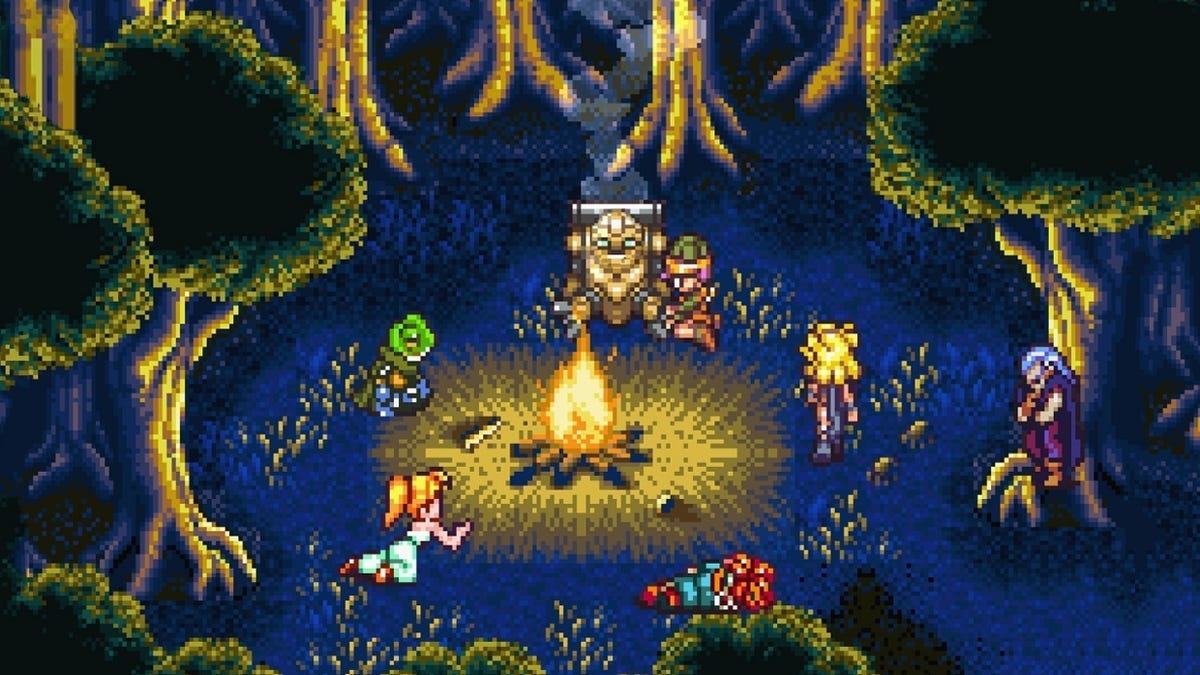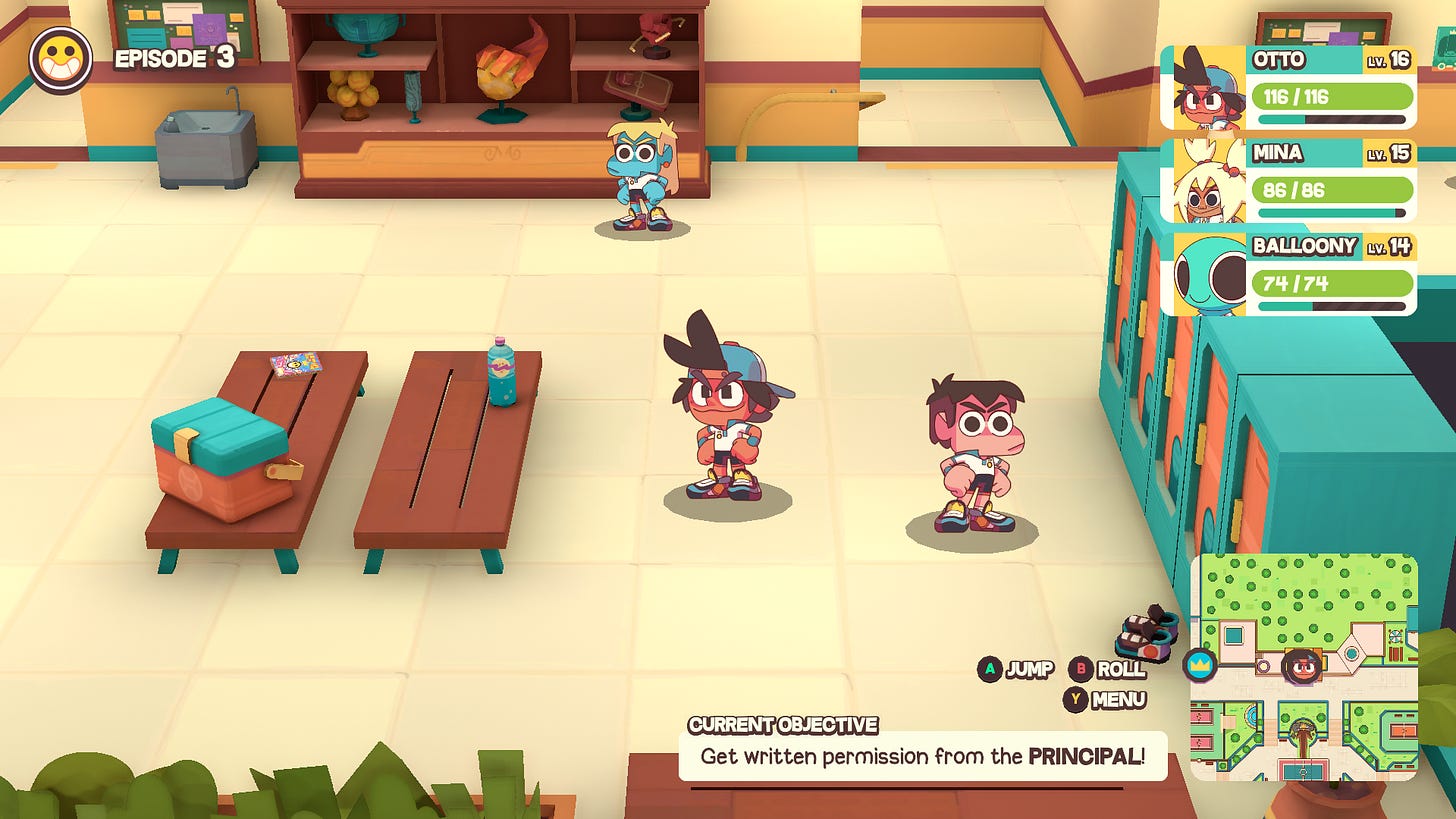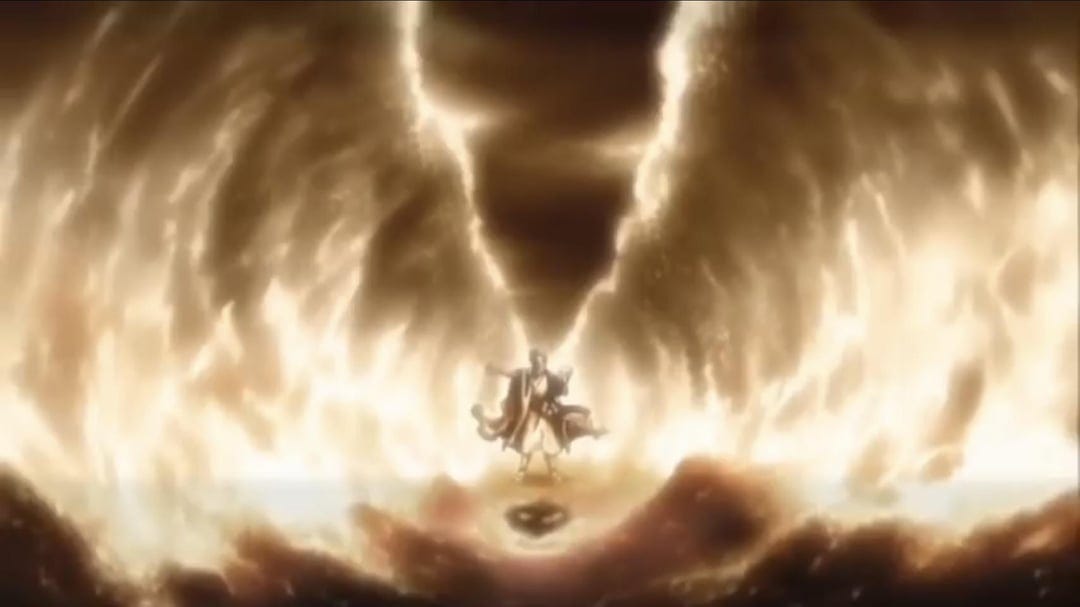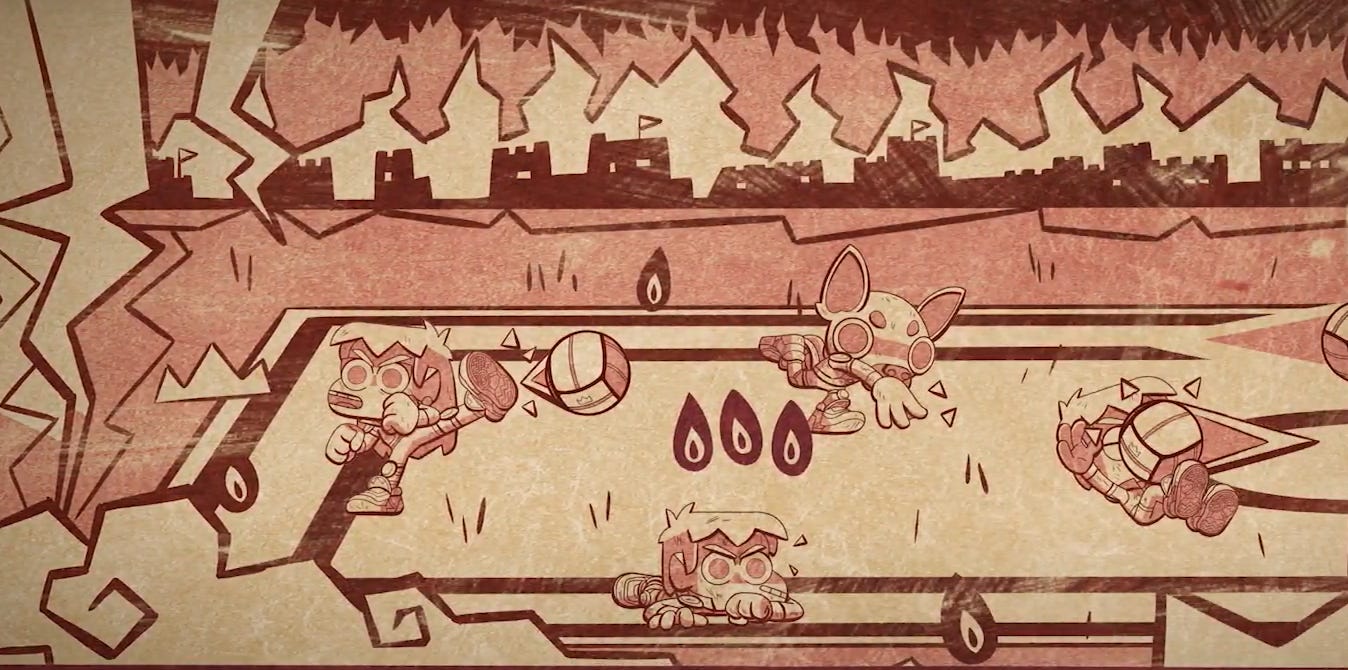BRPG: Ball in Brazil is a serious matter and I’m not talking about football
Cultural Séances #1
A few years ago, I came across Dodgeball Academia. It instantly struck me as a digital energy smoothie made from sports anime, Brazilian culture, and schoolyard nostalgia. The game has a zestful mix of sporty anime-esque worldbuilding, a fast-paced and engaging gameplay, funny references, light-hearted dialogue, and vibrant character designs.
I didn’t even need to check who made the game (indie game studio Pocket Trap and artist Ivan Freire, by the way) to know it was Brazilian. The signs were everywhere — subtle in some places, obvious in others — but unmistakable to someone who grew up immersed in the same culture.
In a review I’ve recently read, Demetri from Pixel Die refers to ‘Japanese Role-Playing Games’ (JRPGs), which are defined by specific traits: among these, maybe the most common include a structured adventure, pre-defined characters, character progression and customisation, according to the PlayStation website.
As Demetri points out, this subgenre is, at least today, a tricky definition. I won’t get too deep in the discussion (you can read some debates here, here, and here too!), but as he pointed out, other games created out of Japan may bring the same elements, but would skip the ‘J’ and just be an ‘RPG’.
Demetri cleverly defined Dodgeball Academia as a BRPG, not only because it’s an RPG made in Brazil, but also because it is, at its core, a Ball RPG.
I have to say, this definition hit me square in the face with its double entendre. So much that I will dodge all other ideas I had for this text to focus on the two sides of the court: the Ball and Brazil.
B for Ball RPG — Lore and worldbuilding
Dodgeball Academia is set in, well, a school dedicated to dodgeball, as the name implies.

Its lore is masterfully presented in-game, but you can see some of it in this short lore-centered trailer. The story indicates dodgeball as this world’s main activity, around which economy gravitates and through which conflicts are resolved, as Carlos Alberto Jr. from Show Me Tech points out in his text.
If you’re familiar with Yugi-Oh! And Beyblade, you’ve seen fantastic worlds where playing a card game or spinning a toy are the most important things ever.
Here, the same thing happens, but with dodgeball. In the past, for instance, ‘The Great Dodgeball Wars’, a widespread military conflict fought not with weapons, but through dodgeball, rocked the foundations of the Earth.
This global chaos was only put to rest when a legendary player emerged, his super-powered throw bringing peace. His force was so immense that the Hero’s Dodgeball still spins to this day against a stone located in the academy. Its amazing power even generates energy for the school, and when touched, unlocks unique powers. When students are successfully admitted into Dodgeball Academia, they go through a ceremony, touching the Hero’s Dodgeball to tap into their dormant powers, releasing them.
At the school, students aim to become professional dodgeball players, honing their skills to win the institution’s tournament and rise up to turn into full-fledged dodgeball legends.
The game blends traditional RPG elements with a sports theme, particularly drawing from goofy, over-the-top sports animes, like Inazuma Eleven and Captain Tsubasa, as well as sports games like Mario Tennis. In addition to exaggerated superpowers, these media also bring themes of friendship, rivalry, and personal growth, all very much present in Dodgeball Academia.
The school’s campus — and the game’s world, in general — is dotted with a myriad of dodgeball courts. These are different from one another, sometimes not only in size and appearance. Specific courts — like the ones in the forest! — bring different mechanics, adding some variety to the matches and keeping the game fresh.
The dynamic courts aren’t the only element bringing life to the school. Other students are often running around, and, of course, challenging you to a match, similar to Pokémon trainers in the core Pokémon games. This helps the player level up between more important matches, like the ones in the tournament. Not all students will want to battle, but ‘dodgeball’ is the central theme in every dialogue.
This isn’t that exaggerated, considering that Dodgeball is the heartbeat of this world, woven into every aspect of life, from its economy to its history. While this level of dedication might seem like pure fantasy, it actually echoes something very real: the way sports shape cultures in the real world. That brings us to the other side of the court — how Dodgeball Academia wears its Brazilian roots, especially in its canteen menu.
B for Brazilian RPG — The cultural background
In Brazil, dodgeball is known as "queimada", a term that literally means “fire” or "burned." The name itself captures the high-stakes nature of the game — if you’re hit, you may feel like being set aflame. Dodgeball Academia takes this familiar playground pastime and turns it into something grander, infusing it with RPG mechanics, over-the-top superpowers (including turning a ball into an actual fireball), shounen anime-style storytelling, and a touch of Brazilian culture.
The game mainly incorporates these roots through food. The school’s canteen offers a selection of meals that would be instantly recognisable to anyone who grew up in Brazil. Whether it’s pão de queijo (cheese bread) or brigadeiro (chocolate truffle), for Brazilian players, it’s a warm nod to home, and for international audiences, it’s a tasty introduction to everyday staples.

This cultural identity extends beyond food. Dodgeball Academia also embraces internet slang and the playful banter that define modern communication. The game was originally written in English; it does an excellent job of translating expressions in a way that feels natural, ensuring that the game’s humour and personality remain intact regardless of the language. When played in Portuguese, however, Brazilian expressions and memes are usually thrown around, which has a special flavour to us Brazilians, known to be chronically online.
Despite its Brazilian DNA, the game resonates with players on a universal level. The chaos of gym-class dodgeball, the friendships and rivalries, and the way kids treat schoolyard games as epic battles — these are experiences that transcend borders. Whether you grew up in São Paulo or San Francisco, the competitive energy of dodgeball is instantly familiar.
The nostalgia does not stem only from dodgeball itself, though, but the way it is represented. This may reignite the ‘JRPG’ debate, but much of the longing the game brings originates from references to shounen and sports anime, as well as Japanese video game classics such as Mario Tennis. I can, however, give some slight support to the BRPG term while also pointing towards JRPGs, as Brazil is home to the largest population of Japanese origin outside of Japan. I want to say this explains the influence Japanese media exerts over Brazil, but I honestly think this happens everywhere: the worldwide success of Japanese popular culture is a testament to Japanese soft power.
Brazilian pop culture may not be as overarching as Japan’s, but it’s also significantly successful. I’d personally argue that Brazil’s music (Samba, Bossa Nova, MPB, Frevo, Choro, Forró and Brazilian Funk are the most famous genres), Carnaval, soccer, and telenovelas are its greatest cultural products. Let’s take the telenovelas, for instance: exported internationally, they helped spread Brazilian culture, and even impacted perceptions of contemporary Brazilian fashion.
Brazilian video games, however, can’t be considered a top cultural export. The industry is nowhere near giants like Japan, the U.S., China, and South Korea, and mostly rides upon indie developers. I would argue, however, that occasional indie gems are becoming more and more frequent: Dodgeball Academia is one example of such recent high-quality Brazilian games. The country's indie scene has been steadily growing, with titles like Horizon Chase, Dandara, Unsighted, Pocket Bravery, and Blazing Chrome gaining international recognition. With more developers embracing their cultural identity while crafting experiences that resonate worldwide, I am rooting for the Brazilian game industry, hoping that it is charging up for a game-winning throw.
— The ghost who can’t throw a ball,
almoghost.exe (or André Almo if you’re feeling serious) 👻














As Fernanda Torres herself stated recently: the telenovelas made brazilian people obsessed with themselves and safe from colonization. Our game industry can do that, as well!
Thank you, now I want to buy it!